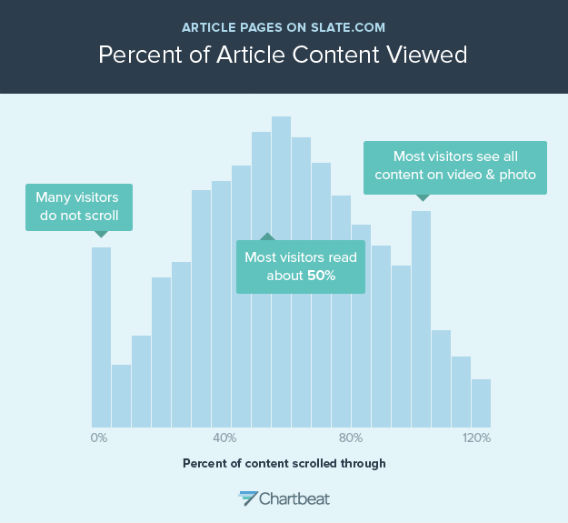Twitter Co-Founder Evan Williams has an ambitious new plan: to shift our daily reading habits away from consuming incremental news bites and towards engaging with enlightened ideas curated by an intelligent algorithm. Ordinarily, such a goal would seem utopian, were it not for the fact that Williams is among a handful of Internet pioneers who have disrupted the media industry multiple times.
Before Twitter terraformed the landscape of news distribution, Williams’s first smash hit, Blogger, became the branded namesake for an upstart generation of amateur writers to challenge the established players
Most importantly, Medium, his new platform for publishing mostly long-form content, has quickly garnered popularity — and infamy. In only a few months, its most popular contributions are making front-page headlines and snagging millions of views. In our Silicon Valley bubble, its contributors semi-regularly spark industry wide-conversations among the Internet elite.
“The site from Twitter’s co-founders is one year old, and still mysterious,” wrote The Atlantic‘s Alexis Madrigal recently, in one of many stories attempting to understand the Internet multi-millionaire’s enigmatic new project.
Now, for the first time since Williams launched the beta of Medium last year at our own TechCrunch Disrupt conference, Williams is ready to talk.
News “Crap” Vs. A Book
Williams is taking aim squarely at the news industry’s most embarrassing vulnerability: the incessant need to trump up mundane happenings in order to habituate readers into needing news like a daily drug fix.
“News in general doesn’t matter most of the time, and most people would be far better off if they spent their time consuming less news and more ideas that have more lasting import,” he tells me during our interview inside a temporary Market Street office space that’s housing Medium, until the top two floors are ready for his growing team. “Even if it’s fiction, it’s probably better most of the time.”
It’s true. The daily news cycle doesn’t always do its job at enlightening American democracy. In the aptly titled research paper, “Does the Media Matter”, a team of economists found that getting a randomized group of citizens to read the Washington Post did nothing for “political knowledge, stated opinions, or turnout in post-election survey and voter data.”
News, alone, is evidently insufficient to make us a more informed society.
Instead, Williams argues, citizens should re-calibrate their ravenous appetite for information towards more awe-inspiring content. “Published written ideas and stories are life-changing,” he gushes, recalling his early childhood fascination with books as the motivation to take on the media establishment. The Internet “was freeing that up, that excitement about knowledge that’s inside of books–multiplied and freed and unlocked for the world; and, the world would be better in every way.”
In Williams’s grand vision, the public reads for enlightenment; news takes a backseat directly in proportion to how often it leaves us more informed and inspired.
In addition to better content, the news itself might be better written by industry professionals. Climate deniers from conservative outlets, he argues, are a prime example of how the media has failed in its obligation to inform the public. During an extended rant on global warming during our conversation, he didn’t complete the explanation on why industry-professionals-as-writers would solve the problem. But, it’s easy to imagine that if nearly all climate scientists believe in man-made global warming, it would be difficult for media outlets to find a credible writer to claim otherwise.
The elephant in the room was that Williams was not-so-subtly attacking me and my colleagues, especially considering he had claimed that “the state of tech blogs is atrocious — its utter crap.” I asked him to explain what he meant, trying not to sound offended.
Diplomatically clarifying his words, he responded: “Part of the reason a lot of tech blogs are bad is the people writing them don’t really understand what they’re writing about. And so I want to change our definition of professional writing. At least expand it.”
Clearly taking a position on the long-standing debate between journalists and industry insiders, Williams says that the kinds of weekend columns TechCrunch runs from noted businesspeople “are absolutely more valuable” than some of the daily news written by reporters with little business experience.
However, Williams was clear: “please don’t set this up as Evan thinks tech blogs are crap and therefore is fixing them with Medium. People are going to publish crap on Medium.”
Williams was referring to a number of infamous Medium posts that were brazenly elitist and spread misinformation. Silicon Valley entrepreneur Peter Shih’s “10 Things I Hate About You: San Francisco Edition,” was widely criticized for, among other things, perpetuating Silicon Valley’s abject misogyny and callousness toward the homeless. In another embarrasing moment, Medium contributor Michele Catalano wrongly implied that nefarious government spies seized her computer after she searched Google for “backpacks” and “pressure cookers” . Both posts were later modified or taken down. Though the missteps spawned a series of thoughtful counter-posts on Medium and a handful of media outlets, Williams didn’t try to spin the reactions a win.
“People are going to publish crap on Medium…. And guess what? There’s crap on Twitter. There’s crap on blogs. There’s crap on the Internet. And if we try to keep crap off the Internet, the Internet wouldn’t be important,” he argues, with a noticeable defensiveness in his voice that belies his leaned-back posture. “The system’s working if there’s great stuff that otherwise wouldn’t see the light of day and/or gets more attention than it would otherwise.”
Okay then, so what’s Williams’s solution for putting a spotlight on the good stuff?
A Simple Medium To Attract Every Good Idea
“Everyone has a story or insight that is worth repeating and they just don’t have the venue to get it heard,” adds former Wired.com Editor Evan Hansen, a senior editor at Medium, charged with building out its tech, science, and business coverage. Medium sees itself as a hybrid between professional outlets like The New York Times and the unwashed blogger free-for-all of The Huffington Post (which is owned by TechCrunch parent company, Aol). Instead, Medium wants to be the platform for everyone’s one truly viral idea.
Health startup entrepreneur Nick Crocker probably never thought his simple post about a walk through the junk food aisles at his local grocery store would snag over 1 million(!) views. Crocker’s rather elegantly crafted “The World Is Fucking Insane” is a photo-heavy, first-person journey though grocery aisles lined with monster stacks of chemically altered sugary foods on his way to pick up some milk. Its visual simplicity evidently expressed the public’s latent frustration for America’s health crisis in a way that other statistics-packed medical news did not.
In another example, Aron Solomon put a national spotlight on smartphone taxi app, Uber, after it unintentionally instituted surge pricing during Toronto’s massive summer storm. A few news outlets covered the embarrassing incident, but nothing else went viral like the voice of an innocent bystander outraged at the negligent price gouging in his hair-raising post, “The Don’t Be An Asshole Rule.”
Most importantly, both of these posts were composed in the heat of the moment. At Medium, there’s no need to register a website, sift through a mountain of design options, and re-organize your schedule for the habit of blogging. You just write. “If it’s on a whim, that whim is killed the moment you’re forced to find a unique sub domain and find a template,” explains Williams.
The sheer simplicity of Medium’s writing platform is garnering accolades from respected writers and designers. Medium is “the best composition experience on the web, hands-down” wrote early Facebook designer Julie Zhuo, in a Medium post about Medium (so meta). “You see exactly what your post is going to look like. There is no translation, no guess-work, no typey-typey into some fat text area and wondering whether it’ll do ‘s and ‘s and :)’s correctly.”
New York Times tech columnist Nick Bilton also gives Medium a thumps up. “I really like Medium — it’s one of the rare instances where the technology is truly in the background,” he writes to me in an email. “I’d love to be able to replace WordPress with Medium on my personal site.” Fortunately for WordPress, Medium has no plans to become a separate blogging platform — but, it might become home to the occasional industry muse who doesn’t want to hassle with setting up a blog.
Still, Medium isn’t betting that viral posts from one-hit wonders are a sustainable foundation. It has allocated a sizable budget to pay for professional magazine-style exposes. Most recently, it bankrolled a massive 10,000 word, movie-worthy script about a 62-year-old commando whose tantalizing life has included a mission to recover $3 million in gold bullion in the Peruvian mines. “Mercenary” was edited by the same acclaimed author whose 2007 Wired piece about freeing Iranian hostages eventually became the Academy Award-winning fictionalized re-enactment, Argo. Over the next 18 months, the partnering studio, Epic, promises five more edge-of-your-seat stories.
War correspondent, David Axe, is also bringing some heavy long-form explainers about creepy military tech to the pages of Medium. Despite Medium’s implied reluctance against professional writers, it’s clearly willing to invest in public Internet journalism.
“I always felt you couldn’t live without the big expensive scoops as a serious brand in media,” explains Hansen. “If you pursue the low end all the time then the advertisers want nothing to do with you. People with money and affluent readers and people with positions in the areas that you cover of authority and influence don’t read you. You become kind of like, you’re nothing.”
Hansen maintains that Medium is still experimenting. Wherever its ends up, Medium evidently wants to be the home of any bold, viral idea — and it’s willing to run a financial and engineering bulldozer over any barrier to writing.
Yet, even if writers are willing to come to Medium , how will readers find them at a still-obscure publisher?
A Pandora For Substantive Reads, Pageviews Be Damned
Traditional news editors stake their reputations on having an intuition for what drives eyeballs to their sites. Editors don’t, however, know whether readers leave more informed.
Williams thinks Medium has an answer: an intelligent algorithm that suggests stories, primarily based on how long users spend reading certain articles (which he’s discussing publicly for the first time). Like Pandora did for music discovery, Medium’s new intelligent curator aims to improve the ol’ human-powered system of manually scrolling through the Internet and asking others what to read.

In the algorithm itself, Medium prioritizes time spent on an article, rather than simple page views. “Time spent is not actually a value in itself, but in a world where people have infinite choices, it’s a pretty good measure if people are getting value,” explains Williams.
In fairness to news editors, we do know how much time readers spend on an article: We know that less than 60 percent will read more than half of an article, and a significant slice won’t read anything at all. “I’m going to keep this brief, because you’re not going to stick around for long. I’ve already lost a bunch of you,” joked tech columnist Farhad Manjoo, in a cathartic post for Slate that was aptly titled “You Won’t Finish This Article: Why People Online Don’t Read To The End.”

But, because advertisers pay for page views, the incentive is to fish for clicks, no matter how much we try to feature other kinds of higher-quality content.
For example, after Miley Cyrus’ infamous burlesque dance in front of the MTV’s Video Music Awards’ impressionable tween audience, The Onion brilliantly lambasted CNN’s decision to make a burlesque show front-page news.
“So, you may ask, why was this morning’s top story, a spot usually given to the most important foreign or domestic news of the day, headlined “Miley Cyrus Did What???” and accompanied by the subhead “Twerks, stuns at VMAs”?,” wrote The Onion, in a parody OpEd by CNN’s managing editor.
“The answer is pretty simple. It was an attempt to get you to click on CNN.com so that we could drive up our web traffic, which in turn would allow us to increase our advertising revenue. There was nothing, and I mean nothing, about that story that related to the important news of the day, the chronicling of significant human events, or the idea that journalism itself can be a force for positive change in the world.”
(Another gem of an Internet response was a Tumblr of Miley Cyrus twerking on things that matter.)

I think most of us in the news industry would love if our audience only cared about deeply substantive stories, but expensive content with relatively few page views doesn’t pay the bills. So, what’s Medium’s plan to make money without advertising?
“Web People” And Financial Stability
The short answer is that no one really knows. “Well, it’s got to be sustainable at some level. So I think revenue is in the model,” says Hansen, with a casual attitude that indicates just how little focus Medium is currently devoting to the issue of monetization.
One option is selling eBooks off of its cinematic scripts. A portion of the readers may be willing to pay for the convenience of a Kindle version of “Mercenary,” for instance. But, traffic has to be outstanding for that kind of venture to make money. Pageviews to Mercenary have been okay. “It hasn’t blown the lid off,” admits Hansen, in reference to other Medium pieces that snagged a few million pageviews.
Other monetization options include licensing its technology, and revenue sharing with established media brands that want to post stories on and from Medium (Mother Jones has placed some stories on Medium, while Gawker has wholesale reblogged popular Medium posts on their own site).
Though Medium doesn’t have a solid business plan yet, there is a method to the madness of thinking about product first and money second (or third). Williams has a fascinating way of grouping business types in Silicon Valley between those who successfully managed companies through the dot-com bust (“Web People”) and those who packed up their empty bags and left (“Dot-com People”).
He explains that Web People “loved the web. We loved what was possible and we loved the creativity and we were in it to create; we weren’t in it to make money.”
So, when the bubble burst, Web People stayed — some ultimately making the (very) profitable products we all use today. “The Web People are more sustainable because they kept going. Because they’re driven to create, they’re attracted to the web because of its creative potential. They weren’t scared away when it seemed like it wasn’t an instant path to riches.” he explains, “They were persistent.”
An Optimistic Bet That Keeps Williams Persistent
“I think more people would be in a better place if more people shared their ideas,” says Williams. Seen this way, Medium is just the next logical step in Williams’ three-product cycle to inject better ideas into the world. Blogger helped open the doors for pajama bloggers to compete with the media moguls. A few years later, Twitter gave the power of broadcast distribution to everyone who had 140 characters to share.
Now, to complete the circuit, Medium wants to make viral information more substantive — the hope in the Pandora’s box of communication. “It’s also an optimistic stance to say that we can build a system where good things can shine and get attention. And there’s an audience for ideas and stories that appeal to more than just the most base desires of human beings.”
Or, in essence, Medium’s biggest bet is, “people will read long things — they’ll read a lot.” And that there’s a business in this.






























Comment